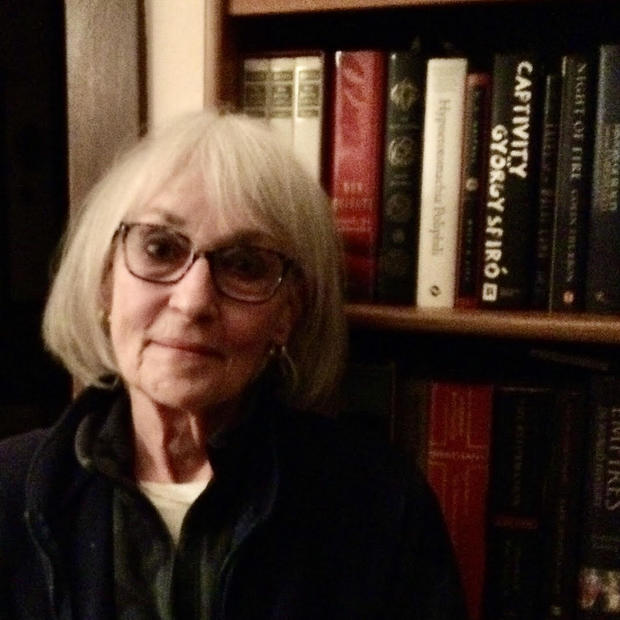Publisher's note: As Crosscut enters its second week of the Fall Membership Drive, I'm asking some of the writers and staffers of Crosscut to introduce themselves and make their own case for public support of the website. First up is Judy Lightfoot, who covers social issues, especially homelessness, and many other topics for us. I have known Judy for many years, going back to when I was editing Seattle Weekly and would cajole her into doing book reviews and reportage. We share the complex fate of both being former teachers of English literature.
Please do support Crosscut by becoming an annual Member, or renewing your Membership. It's easy to donate online; your contribution is tax-deductible and you can also elect a monthly donation plan. Each week we have a drawing for a new-model Kindle, and the winner from the first week's contributors is Christopher Bayley of Seattle. The grand prize at the end of the campaign is an iPad 2. Today's drawing will be for two $25 gift certificates at Elliott Bay Books. Donations at the $75 level will get a nifty Crosscut tote bag. And all Members get various benefits, including party invitations and ticket discounts. More details at the Member page.
Something we need to “be wary of,” observes Seattle poet Christine Deavel in her new collection, Woodnote, is “the dismissal hidden / in the ready assessment.” With public discourse today often seeming to consist entirely of ready assessments, it’s useful to be reminded that sometimes the reason we make them is to dismiss an issue that feels uncomfortable. We don’t want to have to pay attention to it.
At Crosscut, however, keeping complex issues open, weighing them thoughtfully, and returning to weigh them again later in light of new knowledge are major commitments. I hope you’ll support these ideals with your new or renewed membership.
The ideal that Crosscut’s editors set for writers is that a story should have enough good information and explicit reasoning that a reader could use the material to develop a viewpoint different from the writer's own. So, writing for Crosscut, I can’t just hop on the surfboard of my prior perspective and ride it through the waves. The board has to stay on the beach while I get tumbled about, water up my nose and salt in my eyes, rinsed of my old certainties. My task is to remain an amateur in the root sense of the word — doing what I do because I love finding out more about things — not because I'm a professional whiz.
Much of my work life has been amateurish in this way. After completing a doctorate in Renaissance literature decades ago, I started teaching at Lakeside School because no university positions were open in the Seattle area at the time. It was just a stopgap, I told myself, but I soon found that I liked my job, and I stayed there 25 years. Instead of specializing in Renaissance lit, which is what a college-level career would have required, I got to teach things I'd never learned about before: African-American literature, 20th-century Japanese fiction, “Dreams and Lit,” “Love and the Marketplace.”
Turns out I like being what the philosopher Isaiah Berlin called a “fox,” who thinks about many different topics from different angles, instead of a “hedgehog,” who explores a single important area with the help of a disciplined structure of concepts. Thanks, Crosscut!


